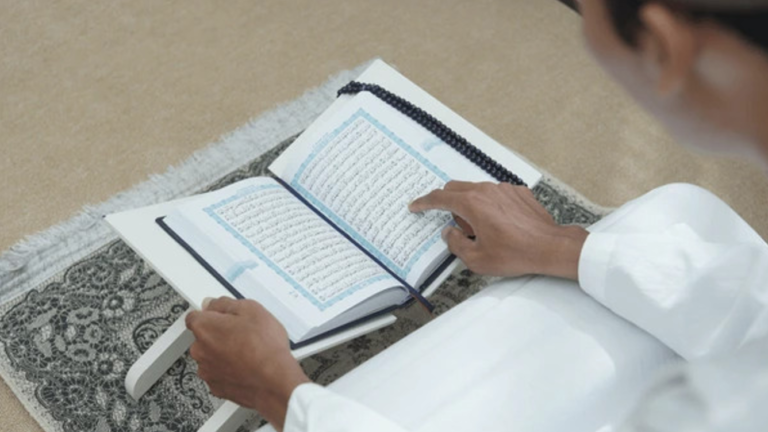Times of Prayer in Islam
A Guide to the Islamic Prayer Schedule
The Islamic prayer schedule is a cornerstone of the faith, marking key times each day for Muslims to connect with God. These prayer times, known as Salah or Salat, are carefully calculated based on the sun’s position, emphasizing spirituality and discipline in daily life. This guide will explain the five daily prayers, their significance, timing, and how they’re calculated to accommodate geographical differences.
Overview of the Five Daily Prayers
Muslims are required to pray five times a day, each prayer having its own significance and time. Here’s a breakdown of the five daily prayers:
- Fajr (Dawn): Performed before sunrise, Fajr signifies the beginning of a new day and serves as a reminder of God’s blessings at the start of each day.
- Dhuhr (Noon): Dhuhr is prayed after midday and is an opportunity for Muslims to pause their day and refocus on their faith and purpose.
- Asr (Afternoon): Asr occurs in the late afternoon and encourages reflection on one’s actions throughout the day.
- Maghrib (Sunset): Prayed shortly after sunset, Maghrib marks the end of the day and is a time for gratitude and reflection.
- Isha (Night): The final prayer of the day, Isha, is performed after twilight and serves as a spiritual closure, preparing Muslims for the night.
Each prayer consists of specific movements and recitations, including verses from the Qur’an, praises, and supplications.
Significance of Adherence to Prayer Times
Islamic prayer times are more than just a routine; they foster discipline, mindfulness, and a regular connection with God. Each prayer time correlates with a particular phase of the day, creating a rhythm that enhances spiritual awareness and devotion.
The Quran emphasizes the importance of prayer:
“And establish prayer and give Zakat, and whatever good you put forward for yourselves – you will find it with Allah.” (Quran 2:110)
The Prophet Muhammad (peace be upon him) also stressed the centrality of prayer:
“The first matter that the slave will be brought to account for on the Day of Judgment is the prayer. If it is sound, then the rest of his deeds will be sound; and if it is bad, then the rest of his deeds will be bad.” (Sunan An-Nasa’i)
How Prayer Times Are Calculated
The prayer times are based on the sun’s position, making them slightly different each day. Here’s a look at how each prayer time is determined:
- Fajr: Begins at dawn, the time when light first appears on the horizon.
- Dhuhr: Begins just after the sun passes its zenith (midday) and starts to decline.
- Asr: Begins when the shadow of an object becomes equal to its length (or, according to the Hanafi school, twice its length).
- Maghrib: Begins just after the sun has completely set.
- Isha: Begins when twilight has faded, and the night sky is fully dark.
The slight variation in calculation across different schools of Islamic jurisprudence (e.g., Hanafi, Shafi’i) leads to minor differences in prayer times, especially for Asr and Isha. Additionally, many Muslims use prayer time calculators or apps that take into account their geographical location.
Importance of Qibla Direction in Prayer
Prayers are performed facing the Kaaba in Mecca, Saudi Arabia, which is the holiest site in Islam. This direction, known as the Qibla, unites Muslims worldwide in worship, symbolizing unity. Today, technology and mobile applications can assist in finding the precise direction of the Qibla.
Tools for Finding Prayer Times
- Smartphone Apps: Apps like Muslim Pro, Athan, and IslamicFinder calculate prayer times based on location.
- Mosques and Islamic Centers: Many mosques provide prayer timetables and announcements to help community members keep track.
- Online Resources: Websites such as IslamicFinder, PrayTimes, and others offer location-based prayer schedules.
These tools are helpful in areas where Muslims live as minorities, as they ensure accurate timing and make adherence to the prayer schedule easier.
Adjustments for Special Circumstances
- Travelers: When traveling, Muslims may combine prayers (e.g., Dhuhr and Asr, or Maghrib and Isha) and may shorten prayers. This practice is known as Qasr.
- People in Polar Regions: In regions where the sun doesn’t set for extended periods, Muslims follow the prayer schedule of the nearest region with standard day and night cycles or adjust based on Mecca’s times.
- Ramadan: During the holy month of Ramadan, prayer times become central to the daily fasting schedule, especially for Fajr (marking the start of fasting) and Maghrib (when fasting ends).
Daily Routine and Benefits of Regular Prayer
Establishing a daily routine of prayer brings spiritual, mental, and physical benefits. Here are a few:
- Spiritual Connection: Praying at set times fosters a close relationship with God.
- Mental Peace: The structured nature of prayer offers calm and focus, which helps in managing daily stresses.
- Physical Benefits: The movements in prayer, like bowing and prostration, promote circulation, flexibility, and focus.
The discipline of adhering to the prayer schedule also fosters time management skills and a sense of gratitude, anchoring the day in moments of spiritual reflection.
Frequently Asked Questions about Prayer Times
- Q: Why do prayer times change every day?
- A: Prayer times are based on the sun’s position, which shifts slightly each day due to Earth’s rotation and tilt, making the times differ daily.
- Q: Can missed prayers be made up?
- A: Yes, Muslims are encouraged to make up any missed prayers at the earliest opportunity, though regularity and punctuality are ideal.
- Q: What if I cannot pray at the exact time?
- A: Islam is accommodating, and prayers can often be delayed if needed, especially for Dhuhr, Asr, Maghrib, and Isha. However, Fajr must be prayed before sunrise.
Conclusion
The Islamic prayer schedule is a blend of spirituality, discipline, and community. Each prayer time offers an opportunity to reconnect with God, encouraging mindfulness, gratitude, and a rhythm of worship that supports faith and character. For Muslims worldwide, the prayer schedule is more than a ritual—it’s a way of life. Whether through advanced apps, local mosques, or personal reminders, adhering to the prayer schedule helps Muslims deepen their faith and find peace in every phase of the day.







